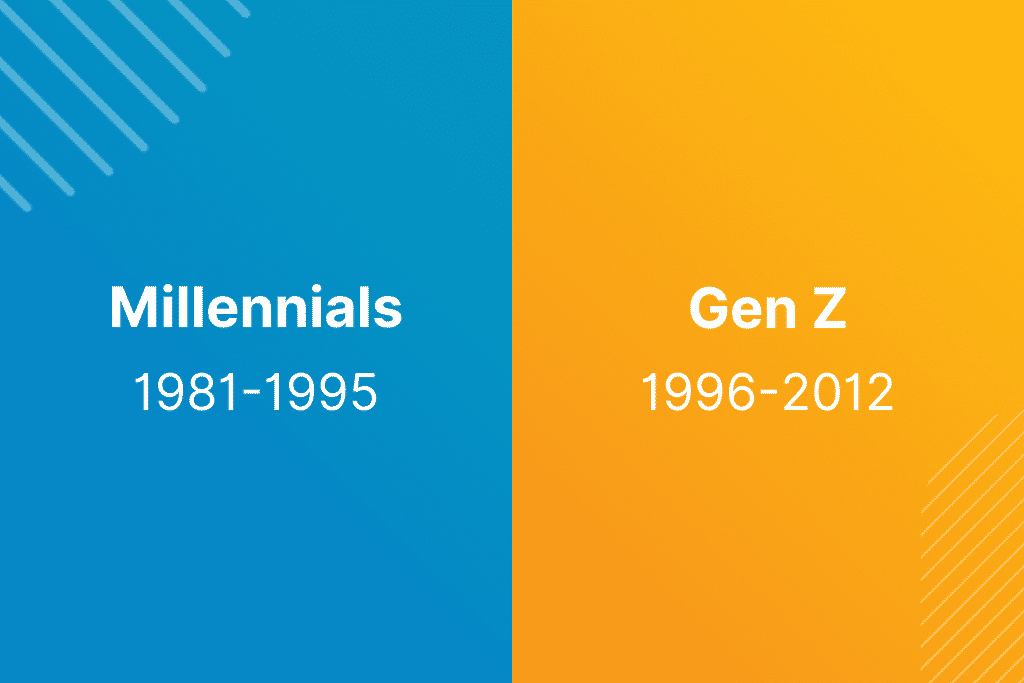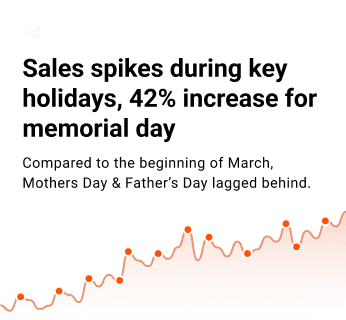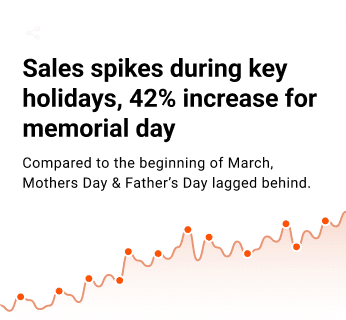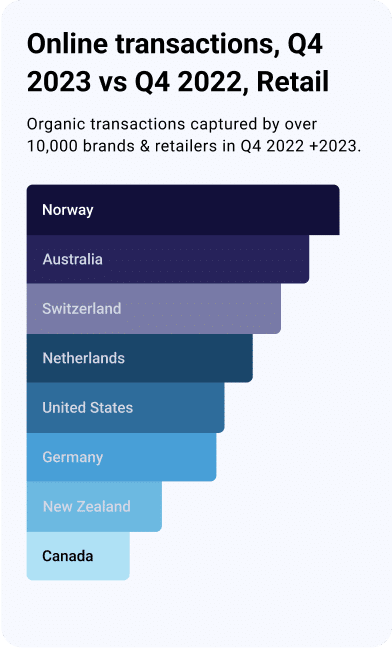Millennials once reigned as the age group everyone was trying to understand. From appreciating their political views and career choices to figuring out how they discover and shop for products, marketers clamored for ways to connect with these young, digitally-savvy shoppers.
But today, a new group of consumers is taking center stage. Gen Z, the generation following millennials, has finally come of age, usurping Millennials’ most-written-about status and commanding the attention of brands all over the globe.
Why? Gen Z is huge, making up nearly one-quarter of the U.S. population. And they’re on track to become the globe’s most impactful shopping demographic.
Millennials vs Gen Z: Digital Pioneers or Digital Natives?
Millennials, approximately 25-34 today, were digital pioneers when they witnessed the rise of search engines, mobile connectivity, and instant messaging in the 2000s. In contrast, Gen Zers, currently 16 to 24 years old, were born directly into a digital world. They grew up with lightning-fast internet, smartphones, on-demand video, gaming devices, and social media all around them, #literally.
So how can marketers begin to understand what Gen Z wants from brands and retailers? It starts by knowing what they believe in — and how that differs from Millennials. Here are four values that Gen Z lives by:
1. Gen Z values diversity and inclusion.
Gen Zers are the most diverse and most multicultural generation the U.S. has ever seen. In a study by media company Awesomeness and research firm Trendara, Gen Zers describe themselves as: global with fluid identities, rule breakers, and tech natives (among other things). Gen Z also thinks social media, tech, and cyberbullying will have the biggest impact on their generation.
Compared to Millennials, and compounded by the ubiquity of social media, Gen Zers are more apt to interact with their peers about social issues. In fact, Criteo’s recent Gen Z report showed that over half of Gen Zers use Snapchat, Instagram, and Facebook several times a day, and they stream 23 hours of video content per week. That’s a lot of connectivity — and real-time news — flowing between Gen Z and the rest of the world.
According to the Awesomeness study, nearly one-third of of Gen Z says their age group is more likely to believe that everyone is equal. It’s no surprise then that they are more active in voicing their opinions about social issues, especially ones that spread like wildfire on social media. The majority of Gen Z says movements like Black Lives Matter (80%), transgender rights (74%), and feminism (63%), should be acceptable in society today.
2. Gen Z expects to talk to companies on every channel.
Gen Z is accustomed to expressing themselves with a single post, tweet, or status update. They share details of their day-to-day activities on several platforms online every day. It makes sense then that Gen Zers expect to be able to engage with their favorite brands in-store, on their phones, and of course, across social media.
Open dialogues are essential to reaching Gen Z, and brands that can create two-way conversations through an authentic digital and social presence, complemented by great in-real-life experiences, will engage more Gen Zers, win their allegiance, and (bonus!) create brand advocates.
Glossier does a great job of merging online with offline, and the brand is well known for having enthusiastic brand advocates on social media. According to CEO Emily Weiss, the beauty startup turned multimillion dollar makeup empire grew 90% of its revenue mostly by word-of-mouth, largely by listening and responding to fans across channels.

3. Gen Z doesn’t believe perfection exists.
When you look at Millennials vs. Gen Z, Millennials are more inclined to take an optimistic view of the future, while Gen Zers adopt a more realistic perspective. This may indicate they’re far less likely to believe in an idealized “American Dream” — the one with a white picket fence, 2.5 kids, a nice car, and a comfortable job. Instead, they look for products and messaging that reflect the real world rather than a perfect life.
Visions of flawless, happy, problem-free lives just don’t resonate — because they’re not real. That’s why Gen Z shirks traditional notions of beauty or images of a carefree existence, unlike past generations.
In step with the rise of mission-driven startups that promote conscious living in an imperfect world, Rimmel’s #LivetheLondonLook campaign celebrated individuality by creating an online short film starring four leading beauty influencers with a clear message: Be bold, be you. The themes of freedom and self-possession, that there’s not a single look everyone should aspire to, and that you shouldn’t be afraid to be unique, ring true for Gen Z.
4. Gen Z wants to show off their own style.
With their strong sense of self-direction and purpose, Gen Z wants to own a singular sense of style. They’re adept at playing with and challenging the expected use, form, and function of all kinds of designed items — and they’re not afraid to wear them (and share them). So while Millennials may have changed the definition of “business casual” in the workplace, Gen Z is taking the evolution of acceptable fashion to the world at large.
Criteo’s Gen Z report shows that Gen Zers don’t want to look like everyone else: 49% think unique products on a website are very important.
Brands should make and market their products knowing that Gen Z wants to make each piece their own. Encouraging Gen Z to play with and infuse everything with their own take helps connect brands to one value that matters a lot — owning your individuality.
Gen Z: All About Inclusion and Individuality
At first glance, they may seem diametrically opposed, but inclusion and individuality are two principles that have a significant impact on how Gen Z thinks. The idea that everyone is welcome and being different is cool, that nothing is perfect so why not embrace our differences — these are values that define the first generation of truly digital natives.
While Millennials might share these beliefs to a certain extent, it’s Gen Z that’s voicing their opinions, across social media and with their shopping dollars. Brands that can respect and support this belief system through their product offerings, manufacturing processes, and marketing campaigns will win more of Gen Z.
Are you an agency marketer? Download the Agency Edition of The 2021 Digital Advertising Manual: New Opportunities to Drive Client Growth for data and advertising strategies that will help you serve your clients in new ways.























